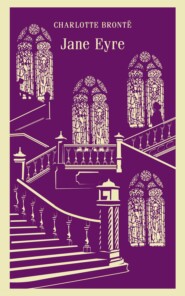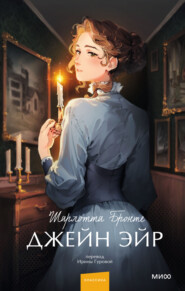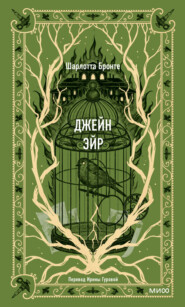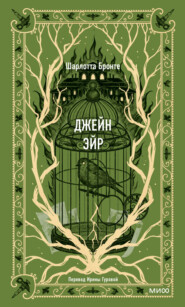По всем вопросам обращайтесь на: info@litportal.ru
(©) 2003-2024.
✖
Villette
Настройки чтения
Размер шрифта
Высота строк
Поля
"I think it a case of spectral illusion: I fear, following on and resulting from long-continued mental conflict."
"Oh, Doctor John – I shudder at the thought of being liable to such an illusion! It seemed so real. Is there no cure? – no preventive?"
"Happiness is the cure – a cheerful mind the preventive: cultivate both."
No mockery in this world ever sounds to me so hollow as that of being told to cultivate happiness. What does such advice mean? Happiness is not a potato, to be planted in mould, and tilled with manure. Happiness is a glory shining far down upon us out of Heaven. She is a divine dew which the soul, on certain of its summer mornings, feels dropping upon it from the amaranth bloom and golden fruitage of Paradise.
"Cultivate happiness!" I said briefly to the doctor: "do you cultivate happiness? How do you manage?"
"I am a cheerful fellow by nature: and then ill-luck has never dogged me. Adversity gave me and my mother one passing scowl and brush, but we defied her, or rather laughed at her, and she went by.".
"There is no cultivation in all this."
"I do not give way to melancholy."
"Yes: I have seen you subdued by that feeling."
"About Ginevra Fanshawe – eh?"
"Did she not sometimes make you miserable?"
"Pooh! stuff! nonsense! You see I am better now."
If a laughing eye with a lively light, and a face bright with beaming and healthy energy, could attest that he was better, better he certainly was.
"You do not look much amiss, or greatly out of condition," I allowed.
"And why, Lucy, can't you look and feel as I do – buoyant, courageous, and fit to defy all the nuns and flirts in Christendom? I would give gold on the spot just to see you snap your fingers. Try the manoeuvre."
"If I were to bring Miss Fanshawe into your presence just now?"
"I vow, Lucy, she should not move me: or, she should move me but by one thing – true, yes, and passionate love. I would accord forgiveness at no less a price."
"Indeed! a smile of hers would have been a fortune to you a while since."
"Transformed, Lucy: transformed! Remember, you once called me a slave! but I am a free man now!"
He stood up: in the port of his head, the carriage of his figure, in his beaming eye and mien, there revealed itself a liberty which was more than ease – a mood which was disdain of his past bondage.
"Miss Fanshawe," he pursued, "has led me through a phase of feeling which is over: I have entered another condition, and am now much disposed to exact love for love – passion for passion – and good measure of it, too."
"Ah, Doctor! Doctor! you said it was your nature to pursue Love under difficulties – to be charmed by a proud insensibility!".
He laughed, and answered, "My nature varies: the mood of one hour is sometimes the mockery of the next. Well, Lucy" (drawing on his gloves), "will the Nun come again to-night, think you?"
"I don't think she will."
"Give her my compliments, if she does – Dr. John's compliments – and entreat her to have the goodness to wait a visit from him. Lucy, was she a pretty nun? Had she a pretty face? You have not told me that yet; and that is the really important point."
"She had a white cloth over her face," said I, "but her eyes glittered."
"Confusion to her goblin trappings!" cried he, irreverently: "but at least she had handsome eyes – bright and soft."
"Cold and fixed," was the reply.
"No, no, we'll none of her: she shall not haunt you, Lucy. Give her that shake of the hand, if she comes again. Will she stand that, do you think?"
I thought it too kind and cordial for a ghost to stand: and so was the smile which matched it, and accompanied his "Good-night."
* * * * *
And had there been anything in the garret? What did they discover? I believe, on the closest examination, their discoveries amounted to very little. They talked, at first, of the cloaks being disturbed; but Madame Beck told me afterwards she thought they hung much as usual: and as for the broken pane in the skylight, she affirmed that aperture was rarely without one or more panes broken or cracked: and besides, a heavy hail-storm had fallen a few days ago. Madame questioned me very closely as to what I had seen, but I only described an obscure figure clothed in black: I took care not to breathe the word "nun," certain that this word would at once suggest to her mind an idea of romance and unreality. She charged me to say nothing on the subject to any servant, pupil, or teacher, and highly commended my discretion in coming to her private salle-à-manger, instead of carrying the tale of horror to the school refectory. Thus the subject dropped. I was left secretly and sadly to wonder, in my own mind, whether that strange thing was of this world, or of a realm beyond the grave; or whether indeed it was only the child of malady, and I of that malady the prey.
CHAPTER XXIII.
VASHTI
To wonder sadly, did I say? No: a new influence began to act upon my life, and sadness, for a certain space, was held at bay. Conceive a dell, deep-hollowed in forest secresy; it lies in dimness and mist: its turf is dank, its herbage pale and humid. A storm or an axe makes a wide gap amongst the oak-trees; the breeze sweeps in; the sun looks down; the sad, cold dell becomes a deep cup of lustre; high summer pours her blue glory and her golden light out of that beauteous sky, which till now the starved hollow never saw.
A new creed became mine – a belief in happiness.
It was three weeks since the adventure of the garret, and I possessed in that case, box, drawer up-stairs, casketed with that first letter, four companions like to it, traced by the same firm pen, sealed with the same clear seal, full of the same vital comfort. Vital comfort it seemed to me then: I read them in after years; they were kind letters enough – pleasing letters, because composed by one well pleased; in the two last there were three or four closing lines half-gay, half-tender, "by feeling touched, but not subdued." Time, dear reader, mellowed them to a beverage of this mild quality; but when I first tasted their elixir, fresh from the fount so honoured, it seemed juice of a divine vintage: a draught which Hebe might fill, and the very gods approve.
Does the reader, remembering what was said some pages back, care to ask how I answered these letters: whether under the dry, stinting check of Reason, or according to the full, liberal impulse of Feeling?
To speak truth, I compromised matters; I served two masters: I bowed down in the houses of Rimmon, and lifted the heart at another shrine. I wrote to these letters two answers – one for my own relief, the other for Graham's perusal.
To begin with: Feeling and I turned Reason out of doors, drew against her bar and bolt, then we sat down, spread our paper, dipped in the ink an eager pen, and, with deep enjoyment, poured out our sincere heart. When we had done – when two sheets were covered with the language of a strongly-adherent affection, a rooted and active gratitude – (once, for all, in this parenthesis, I disclaim, with the utmost scorn, every sneaking suspicion of what are called "warmer feelings: " women do not entertain these "warmer feelings" where, from the commencement, through the whole progress of an acquaintance, they have never once been cheated of the conviction that, to do so would be to commit a mortal absurdity: nobody ever launches into Love unless he has seen or dreamed the rising of Hope's star over Love's troubled waters) – when, then, I had given expression to a closely-clinging and deeply-honouring attachment – an attachment that wanted to attract to itself and take to its own lot all that was painful in the destiny of its object; that would, if it could, have absorbed and conducted away all storms and lightnings from an existence viewed with a passion of solicitude – then, just at that moment, the doors of my heart would shake, bolt and bar would yield, Reason would leap in vigorous and revengeful, snatch the full sheets, read, sneer, erase, tear up, re-write, fold, seal, direct, and send a terse, curt missive of a page. She did right.
I did not live on letters only: I was visited, I was looked after; once a week I was taken out to La Terrasse; always I was made much of. Dr. Bretton failed not to tell me why he was so kind: "To keep away the nun," he said; "he was determined to dispute with her her prey. He had taken," he declared, "a thorough dislike to her, chiefly on account of that white face-cloth, and those cold grey eyes: the moment he heard of those odious particulars," he affirmed, "consummate disgust had incited him to oppose her; he was determined to try whether he or she was the cleverest, and he only wished she would once more look in upon me when he was present: " but that she never did. In short, he regarded me scientifically in the light of a patient, and at once exercised his professional skill, and gratified his natural benevolence, by a course of cordial and attentive treatment.
One evening, the first in December, I was walking by myself in the carré; it was six o'clock; the classe-doors were closed; but within, the pupils, rampant in the licence of evening recreation, were counterfeiting a miniature chaos. The carré was quite dark, except a red light shining under and about the stove; the wide glass-doors and the long windows were frosted over; a crystal sparkle of starlight, here and there spangling this blanched winter veil, and breaking with scattered brilliance the paleness of its embroidery, proved it a clear night, though moonless. That I should dare to remain thus alone in darkness, showed that my nerves were regaining a healthy tone: I thought of the nun, but hardly feared her; though the staircase was behind me, leading up, through blind, black night, from landing to landing, to the haunted grenier. Yet I own my heart quaked, my pulse leaped, when I suddenly heard breathing and rustling, and turning, saw in the deep shadow of the steps a deeper shadow still – a shape that moved and descended. It paused a while at the classe-door, and then it glided before me. Simultaneously came a clangor of the distant door-bell. Life-like sounds bring life-like feelings: this shape was too round and low for my gaunt nun: it was only Madame Beck on duty.
"Mademoiselle Lucy!" cried Rosine, bursting in, lamp in hand, from the corridor, "on est là pour vous au salon."
Madame saw me, I saw Madame, Rosine saw us both: there was no mutual recognition. I made straight for the salon. There I found what I own I anticipated I should find – Dr. Bretton; but he was in evening-dress.
"The carriage is at the door," said he; "my mother has sent it to take you to the theatre; she was going herself, but an arrival has prevented her: she immediately said, 'Take Lucy in my place.' Will you go?"
"Just now? I am not dressed," cried I, glancing despairingly at my dark merino.
"You have half an hour to dress. I should have given you notice, but I only determined on going since five o'clock, when I heard there was to be a genuine regale in the presence of a great actress."
And he mentioned a name that thrilled me – a name that, in those days, could thrill Europe. It is hushed now: its once restless echoes are all still; she who bore it went years ago to her rest: night and oblivion long since closed above her; but then her day – a day of Sirius – stood at its full height, light and fervour.
"I'll go; I will be ready in ten minutes," I vowed. And away I flew, never once checked, reader, by the thought which perhaps at this moment checks you: namely, that to go anywhere with Graham and without Mrs. Bretton could be objectionable. I could not have conceived, much less have expressed to Graham, such thought – such scruple – without risk of exciting a tyrannous self-contempt: of kindling an inward fire of shame so quenchless, and so devouring, that I think it would soon have licked up the very life in my veins. Besides, my godmother, knowing her son, and knowing me, would as soon have thought of chaperoning a sister with a brother, as of keeping anxious guard over our incomings and outgoings.
The present was no occasion for showy array; my dun mist crape would suffice, and I sought the same in the great oak-wardrobe in the dormitory, where hung no less than forty dresses. But there had been changes and reforms, and some innovating hand had pruned this same crowded wardrobe, and carried divers garments to the grenier – my crape amongst the rest. I must fetch it. I got the key, and went aloft fearless, almost thoughtless. I unlocked the door, I plunged in. The reader may believe it or not, but when I thus suddenly entered, that garret was not wholly dark as it should have been: from one point there shone a solemn light, like a star, but broader. So plainly it shone, that it revealed the deep alcove with a portion of the tarnished scarlet curtain drawn over it. Instantly, silently, before my eyes, it vanished; so did the curtain and alcove: all that end of the garret became black as night. I ventured no research; I had not time nor will; snatching my dress, which hung on the wall, happily near the door, I rushed out, relocked the door with convulsed haste, and darted downwards to the dormitory.

















